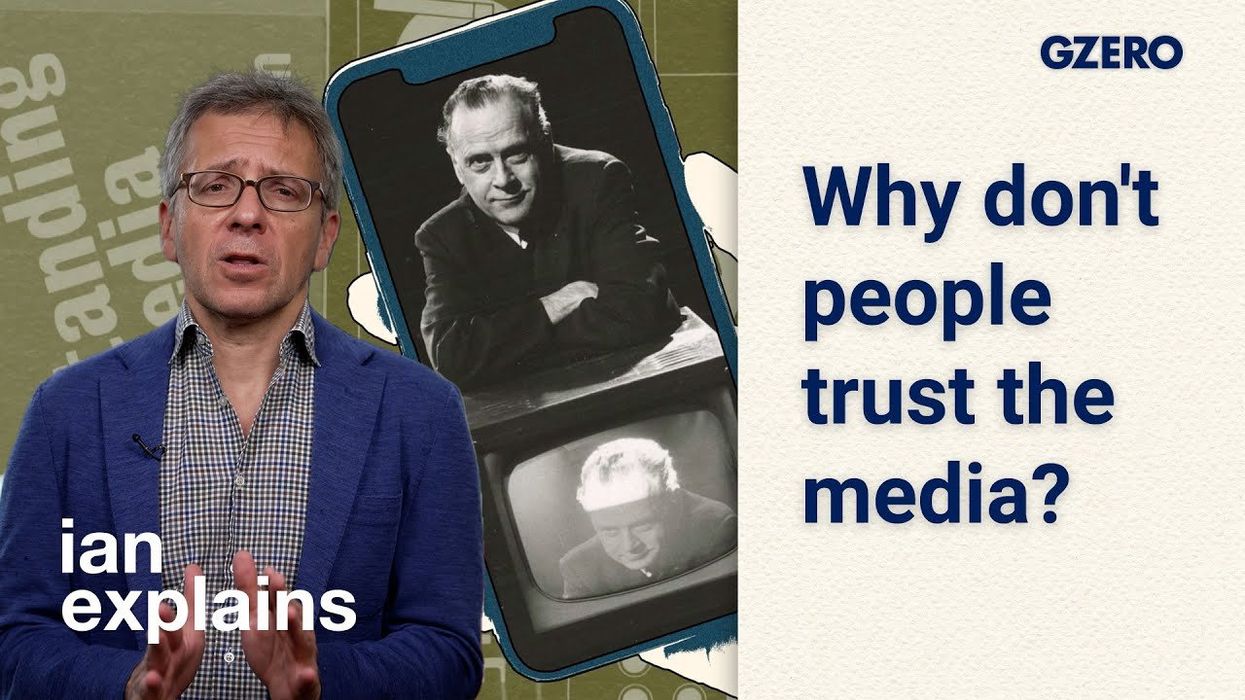GZERO World Clips
Ian Explains: The media's trust problem
It’s getting harder and harder to tell fact from fiction. Trust in media is at an all-time low. At the same time, partisanship is skyrocketing, and generative AI is challenging the very idea of truth. This week on Ian Explains, Ian Bremmer breaks down how the media landscape has changed since the early days of live TV and why the 2024 US presidential election will be a major test of our ability to detect and prevent misinformation from spreading online.
Jul 21, 2023

